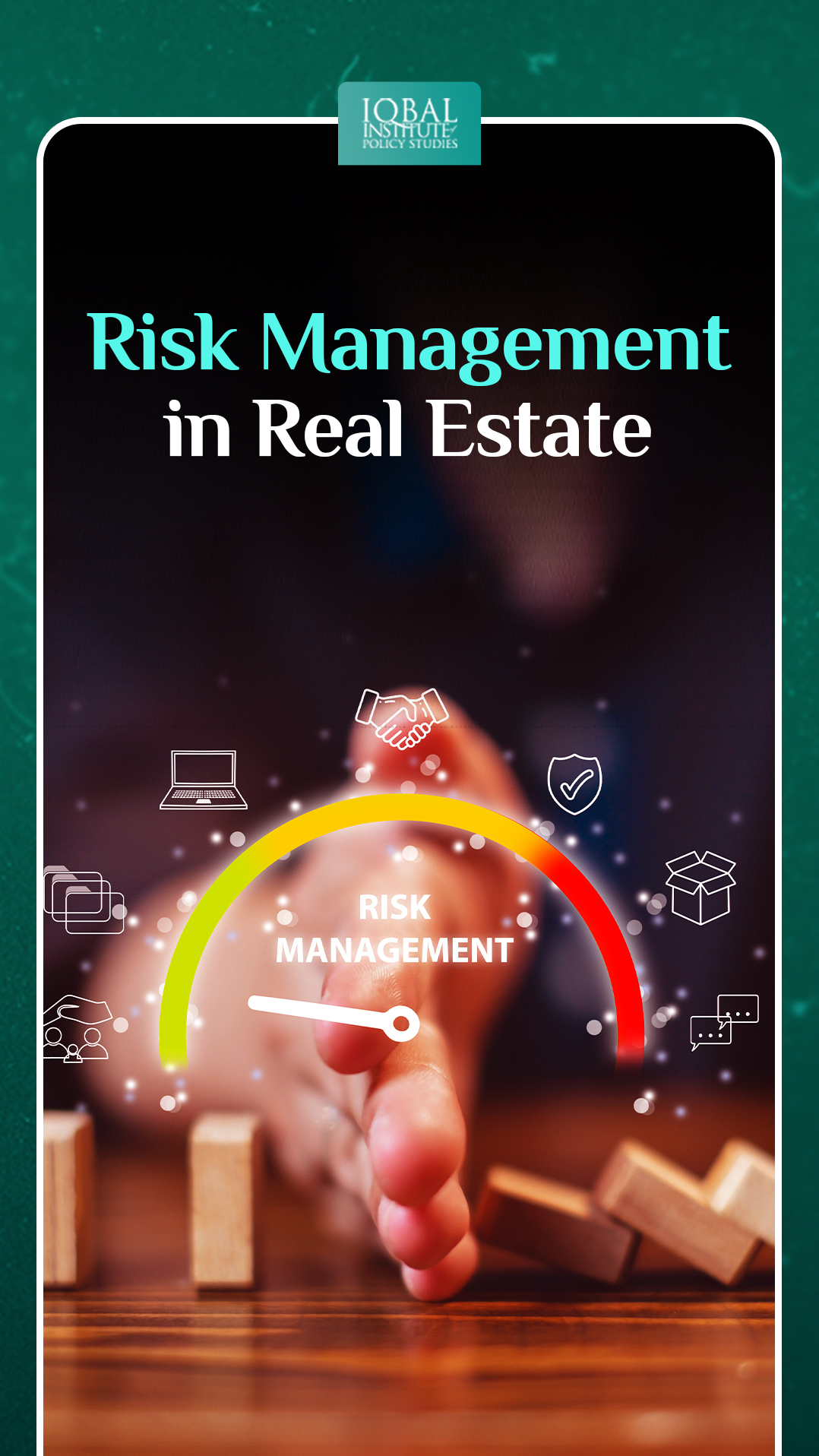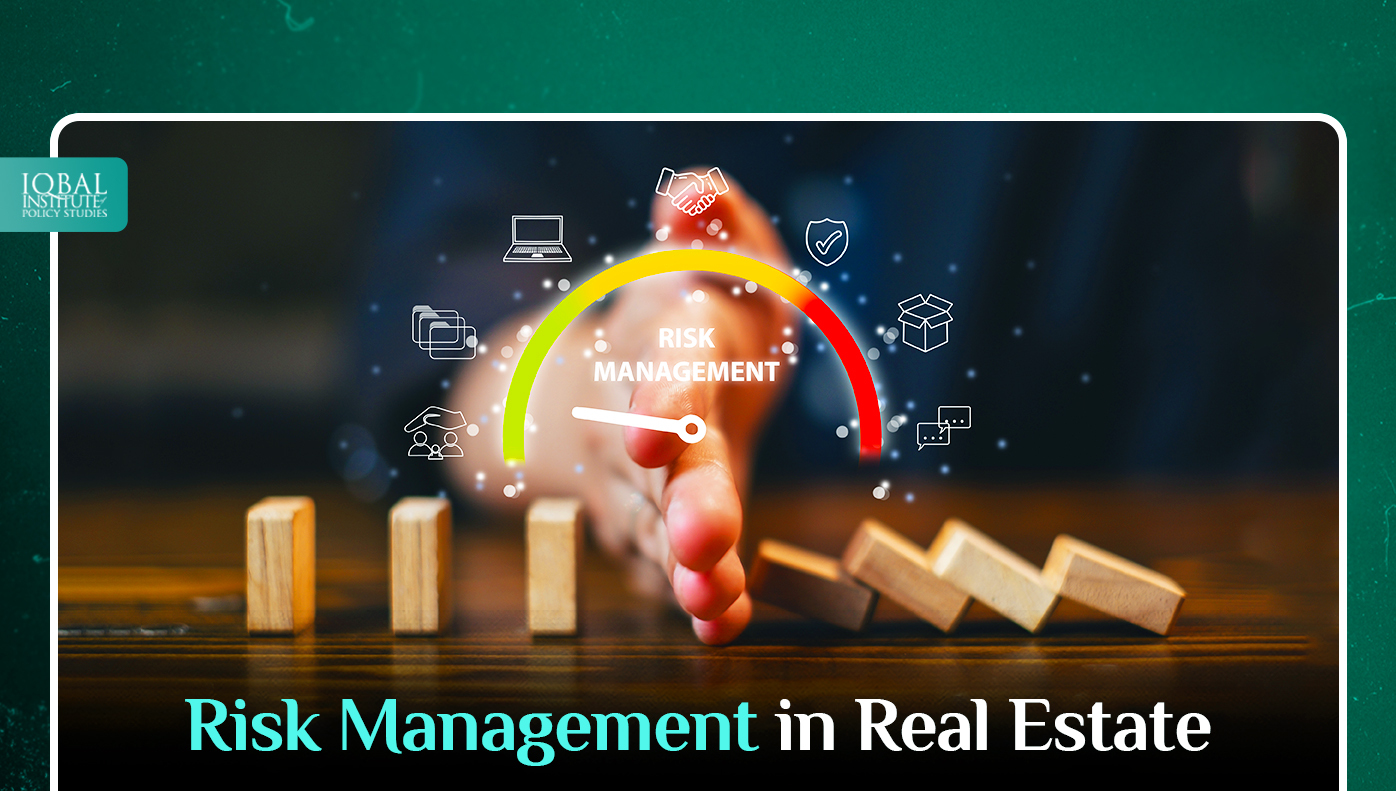The real estate industry in Pakistan has evolved significantly over the past few decades, witnessing unprecedented growth and transformation. With urbanization, population expansion, and increasing foreign investments, this sector has emerged as a critical driver of the nation’s economy. However, like any other industry, the real estate sector is not without its share of risks and uncertainties. In this comprehensive blog post, we will delve deep into the various risks associated with the real estate industry in Pakistan and explore the critical importance of effective risk management strategies.
Understanding the Multifaceted Risks
Market Risks
Price Volatility
The property market in Pakistan is characterized by price volatility, subject to fluctuations driven by shifts in demand, supply, economic conditions, and government policies. The market’s sensitivity to these factors can significantly impact property values and investment returns.
Location and Demand Risks
Real estate is all about location, and the demand for a property is closely tied to its location. Investing in an area that doesn’t align with market trends or future development plans can lead to lower returns and increased holding periods.
Regulatory and Legal Risks
Title and Ownership Issues
Disputes over property titles, ownership, and land encroachments can lead to prolonged legal battles, causing substantial financial losses and project delays.
Zoning and Land-Use Regulations
Changes in zoning laws or land-use regulations can disrupt property development plans, necessitating costly modifications and approvals.
Taxation and Policy Changes
Frequent changes in property taxes, stamp duties, and other government policies can have a significant impact on investment returns and long-term financial planning.
Financial Risks
Financing Risks
Securing financing for real estate projects can be challenging, and fluctuations in interest rates can influence the cost of borrowing and repayment schedules.
Debt Over-leverage
Overextending with loans and debt can be risky, especially during economic downturns when rental income or property sales may decline.
Economic Risks
Economic Downturns
Economic recessions or downturns can lead to reduced demand for real estate, lower property values, and increased vacancies, affecting the viability of real estate investments.
Currency Exchange Rates
Fluctuations in exchange rates can impact the purchasing power of foreign investors and the cost of imported construction materials, affecting project budgets and profitability.
Environmental Risks
Environmental Regulations
Non-compliance with environmental regulations can result in fines, project delays, and reputational damage.
Natural Disasters
Pakistan is prone to natural disasters such as earthquakes and floods, which can cause substantial damage to properties and disrupt real estate operations.
Effective Risk Management Strategies
Due Diligence
Conduct extensive research and due diligence before investing in any real estate project. Verify property titles, check for encumbrances, and assess the prevailing market conditions and demand for the chosen location.
Diversification
Diversify your real estate portfolio by investing in different types of properties, regions, and asset classes, including residential, commercial, and industrial properties. This diversification strategy helps spread risk.
Legal Counsel
Seek guidance from legal experts specializing in real estate to ensure that all transactions and contracts are legally sound, comprehensive, and fully compliant with prevailing regulations.
Financial Prudence
Avoid over-leveraging and maintain a healthy debt-to-equity ratio. Establish contingency plans to weather potential economic downturns and market volatility.
Insurance
Invest in comprehensive insurance coverage that includes property insurance, liability insurance, and coverage for natural disasters. Adequate insurance can provide peace of mind against unforeseen events.
Government Policy Monitoring
Stay vigilant and well-informed about changes in government policies, tax regulations, and zoning laws that could impact your real estate investments. Be prepared to adapt your strategies accordingly.
Risk Mitigation Tools
Explore risk mitigation tools such as hedging strategies to protect against currency exchange rate fluctuations, especially if your real estate investments involve foreign currencies.
Sustainability and Compliance
Ensure that your real estate projects adhere to environmental regulations and incorporate sustainable practices to minimize environmental risks and demonstrate corporate responsibility.
Conclusion
In conclusion, risk management is an indispensable component of success in the dynamic real estate industry of Pakistan. A deep understanding of the multifaceted risks associated with property investment is essential for all stakeholders, including investors, developers, and property management professionals. By proactively addressing these risks through sound risk management strategies, the real estate industry can continue to serve as a vital driver of Pakistan’s economic growth while mitigating potential setbacks and uncertainties.
This article is written by Radma Nouman. Radma is a research analyst at the Iqbal Institute of Policy Studies (IIPS).



Leave a Reply